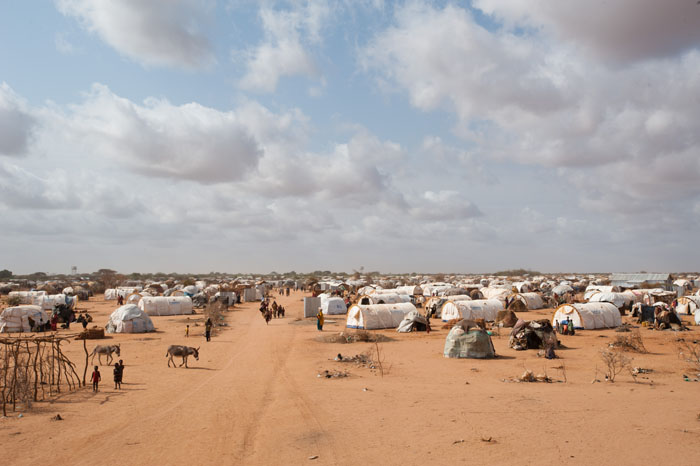
President Obama needs to lead an international diplomatic effort to open food aid corridors in Somalia and stave off the worst famine in the Horn of Africa in 20 years, according to a new Enough Project policy paper,"A Diplomatic Surge to Stop Somalia’s Famine," released today.
In the paper, Ken Menkhaus, Somalia expert and professor of political science at Davidson College, argues that the U.S. and the international community must immediately invoke the Responsibility to Protect doctrine to save the 4 million Somalis – or half the nation’s total population – who are currently in need of emergency food aid. Additionally, another three-quarters of a million people in Somalia are at immediate risk of famine, and 750,000 are refugees in neighboring countries. Menkhaus writes:
The core of the problem is this: Aid agencies have very limited access to famine victims and very limited capacity to monitor food aid deliveries. […] Unless this changes, the 2011 Somali famine will be to the Obama administration what the 1994 Rwandan genocide was to the Clinton administration – a terrible stain, an unforgiveable instance of lack of political will to push policy beyond incrementalism.
Famine victims are in areas controlled by al-Shabaab, an Islamist militia that denies victims food aid at the expense of its starving citizens. In the areas controlled by the U.N.-backed Transitional Federal Government, or TFG, corrupt officials and affiliated paramilitaries divert food aid, prey on famine victims, and fight among themselves. Both Shabab and the TFG must be put under the most intense pressure from the international community, with President Obama and the U.S. taking a lead role on this diplomatic surge.
“Thousands of Somali lives can be saved through bold diplomacy and united international pressure on the Somali combatants,” said Enough Project Co-Founder John Prendergast. “Sending additional humanitarian aid without dealing with access issues will do little to ameliorate the famine. This famine is caused by the policies and actions of the Shabaab and, to a lesser extent, units of the transitional government. While a diplomatic surge is being mounted, evidence regarding the use of starvation as a weapon should be collected and turned over to relevant bodies for prosecution.”
Read the full report, “A Diplomatic Surge to Stop Somalia’s Famine.”
Photo: The sprawling outskirts of Dagahaley refugee camp in Kenya's Dadaab refugee complex. With so many new arrivals to already-full Dadaab, people are forced to pitch tents and construct makeshift huts on the edges of the camp, where there is no infrastructure nor basic services, such as water. (Courtesy of Phil Moore)

